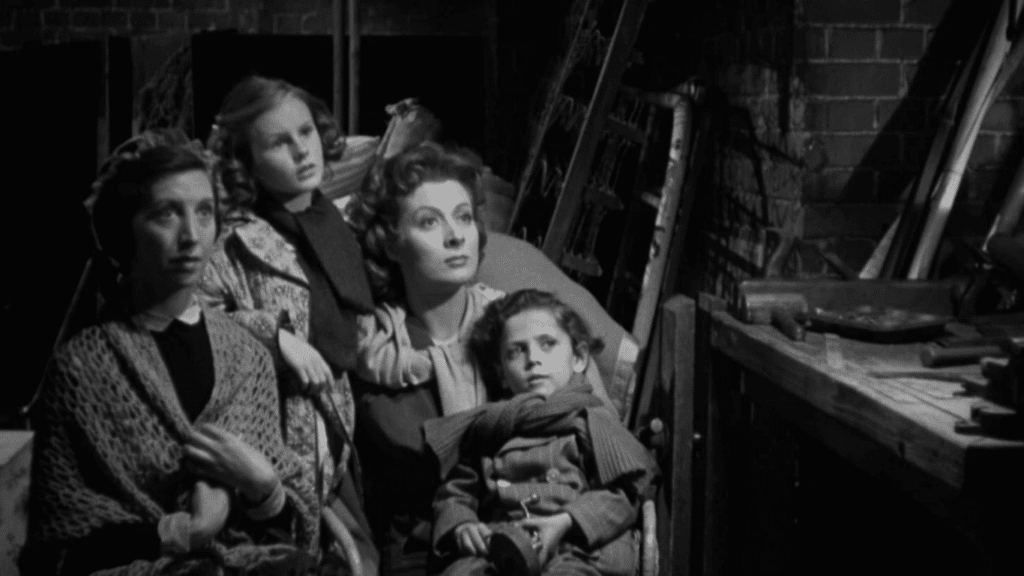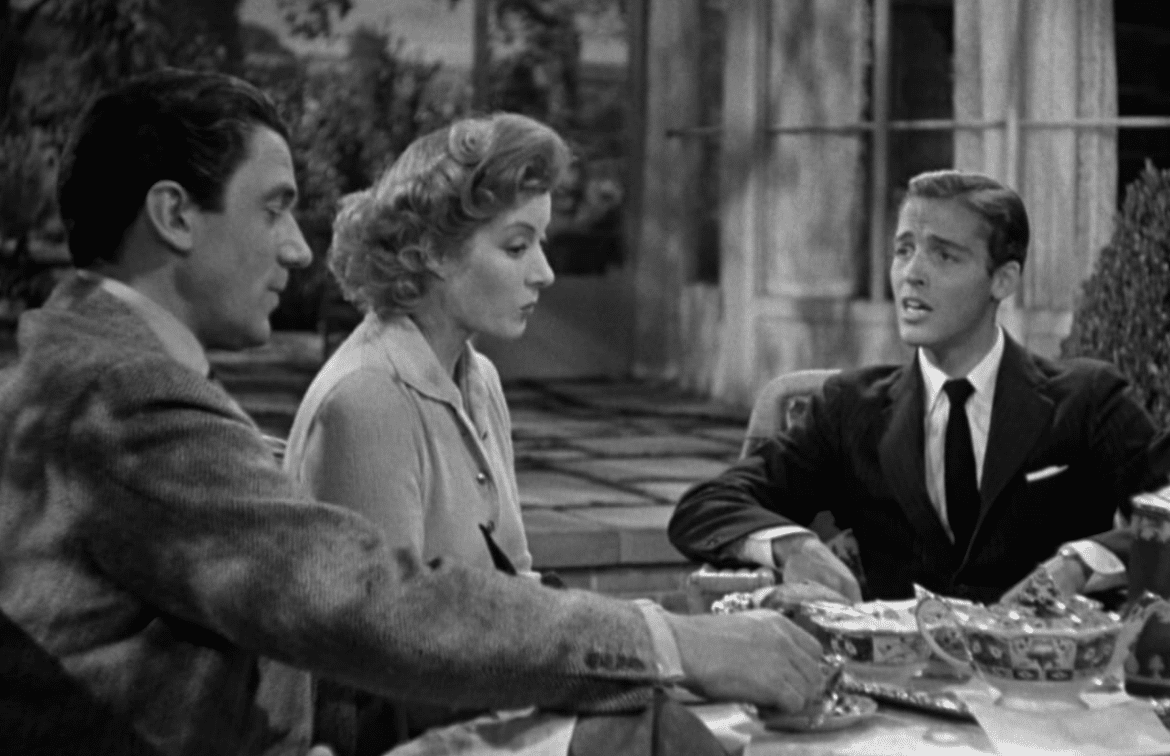I’ve had the pleasure of watching several films helmed by William Wyler, known for his award-winning works including The Best Years of Our Lives (1946) and Ben-Hur (1959), alongside favorites such as Roman Holiday (1953). The Best Years of Our Lives probably spoke to me the most, as it was an impressively poignant film about the difficulties veterans faced upon returning home, released shortly after the war concluded. Wyler himself served in World War II, which undoubtedly gave him firsthand insight into the film’s themes, making it all the more impactful. However, even before Wyler entered service during WWII, he released an indelible picture titled Mrs. Miniver (1942), a blind spot of mine until this viewing. The film, released during the war itself, poignantly captures the pain felt by British families during the Blitz.
Mrs. Miniver begins with a trepidatious Kay Miniver, played by Greer Garson, who seems to be second-guessing a decision. We soon learn that she is worried about a hat she fancied being sold before she can purchase it. She secures it just in time and makes her way home, speaking along the way with a stationmaster who tells her he has named a rose after her. Upon arriving at her stately home, she is greeted by her husband Clem (Walter Pidgeon), who has just decadently purchased a new car, only for one of its tires to go flat. Immediately, we see this family as carefree and well-off, with few worries in the world. This continues when their eldest son, Vin, returns from college as a changed man, full of opinions that echo the idealism and arrogance of youth. He is quickly put in his place by Carol Beldon (Teresa Wright), the granddaughter of the formidable Lady Beldon (Dame May Whitty), and their chemistry sets the stage for an engaging subplot.
In any other film, this charming family dynamic could have been the heart of a delightful British drama, centering on the parents’ spending habits and the budding romance of the young couple. However, Mrs. Miniver is not just that film. The encroachment of World War II pierces through the narrative, most notably when a reverend announces during a church service that England is at war.
What follows is an expertly crafted film that balances the villagers’ desire to maintain normalcy—attending church, entering local flower competitions, and celebrating life’s moments—with the harsh reality of war, which increasingly encroaches upon their daily lives. The Blitz arrives nightly, and one by one, the characters are pulled into the war effort.

Mrs. Miniver (1942)
I was immediately captivated by the film’s portrayal of its characters. The quick-witted dialogue, especially between the women, is a delight, a quality rarely seen in modern films. Equally impressive is how the war’s presence looms on the edges of the narrative until it inevitably takes center stage. I initially believed the film would conclude with a stiff upper lip ending—which, in some ways, it does. However, there is a moment late in the film where Wyler fully delivers his message, a moment that hits with incredible power. A contemporary film might have made this point earlier, with a heavier hand, or even pulled the punch entirely.
What fascinates me most about Mrs. Miniver is how well it holds up, despite its clear wartime purpose. Wyler and the studio intended it not just as a film for the masses, but as a way to showcase life during the Blitz to American audiences, encouraging greater support for the war effort. Though it was released months after Pearl Harbor, when America had already entered the war, its legacy remains intertwined with its subtle propagandistic effect. Winston Churchill himself is credited with saying the film was “worth either five battleships or 50 destroyers.”
Modern films like Dunkirk (2017) and the upcoming Blitz (2025) depict the horrors of war with grander spectacle, better special effects, and large-scale action sequences. However, few films capture the precarious balance between family life and impending war as effectively as Wyler achieved in Mrs. Miniver. It remains an essential war film, not just for its historical significance, but for its emotional depth and timeless storytelling.









